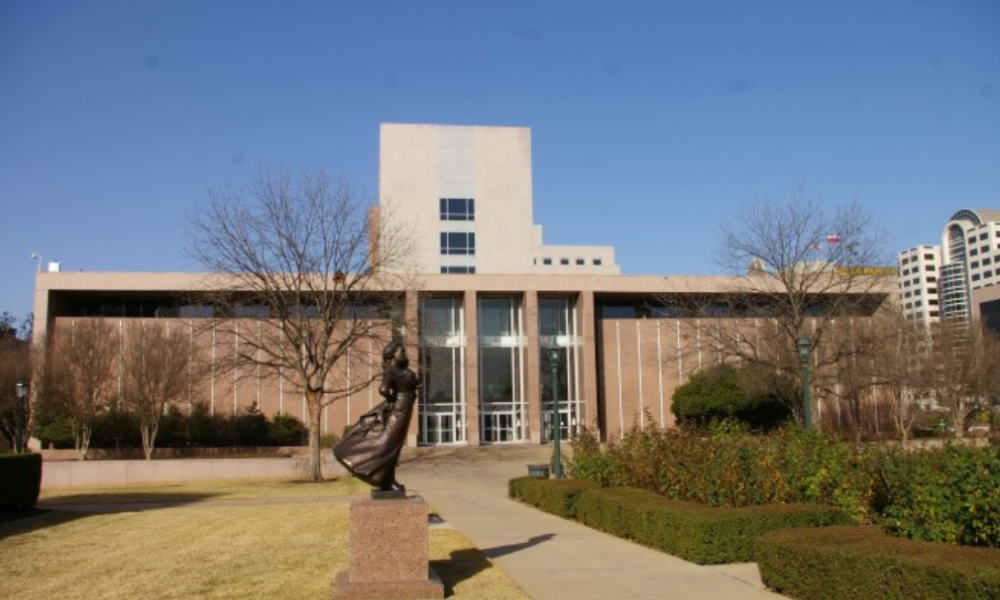
Applying the judicial-proceedings privilege to publicity statements would “unreasonably shield attorneys from liability”

Attorney immunity and judicial-proceedings privilege do not cover media statements made by lawyers, the Texas Supreme Court has decided.
“An attorney who repeats his client’s allegations to the media or the public for publicity purposes is not acting in the unique, lawyerly capacity to which Texas law affords the strong protection of immunity,” Justice James Blacklock wrote in a court opinion released last Friday. “Although attorneys often make publicity statements for their clients, wrapping these statements in an absolute privilege would unreasonably shield attorneys from liability for defamatory statements that would be actionable if uttered by anyone other than an attorney.”
The court made the ruling in relation to a suit brought by US dining, hospitality and entertainment corporation Landry’s Inc. against attorney-founded animal rights organisation the Animal Legal Defense Fund (ALDF) and radio station owner Cheryl Conley. Landry’s had sought a review of whether its opponents’ statements in the media were shielded by either the judicial-proceedings privilege or attorney immunity, according to the court opinion released last Friday.
In September 2016, the ALDF, represented by attorney Carney Anne Nasser, had served Landry’s with a 60-day notice of intended suit for the company’s alleged violation of the Endangered Species Act following an investigation conducted by Conley in 2015 into the habitat of white Bengal tigers featured at Landry’s Houston restaurant Downtown Aquarium. The day the notice was sent out, ALDF published a press release on the matter, which included criticism of the tigers’ environment. The release was also provided to the Houston Chronicle and Denver TV station ABC-Denver7.
Both media outlets ran stories on the intended suit, as did website The Dodo. In the 10 days following the notice’s service, ALDF also published Facebook posts on the issue while Nasser and ALDF executive director Stephen Wells sent out tweets. Landry’s proceeded to file a suit against the ALDF, Nasser and Conley 59 days after the notice of intended suit was served, accusing the parties of “defamation, business disparagement, tortious interference, abuse of process, trespass, and civil conspiracy,” the court opinion said.
ALDF, Nasser and Conley sought a dismissal of Landry’s suit under the Texas Citizens Participation Act, claiming that their statements were protected by the judicial-proceedings privilege. Moreover, Nasser and the ALDF argued that they were shielded from Landry’s claims by attorney immunity.
A trial court ruled in favour of ALDF, Nasser and Conley. However, the Texas Supreme Court contradicted the decision that the parties’ statements were protected under judicial-proceedings privilege and attorney immunity.
The court pointed out that Nasser and the ALDF’s statements to the press and on social media were not under the “office, professional training, skill and authority of an attorney,” thus removing them from the protection of attorney immunity.
“Anyone –including press agents, spokespersons, or someone with no particular training or authority at all – can publicise a client’s allegations to the media, and they commonly do so without the protection of immunity,” Blacklock wrote in the Texas Supreme Court opinion. “While lawyers can also make such statements, attorney immunity does not apply to an activity simply because attorneys often engage in that activity.”
The court also said that applying attorney immunity too broadly weakened the protection of the judicial-proceedings privilege.
“If attorney immunity protected all litigation-related statements by lawyers – whether the statements are made within litigation or not – there would be little need to police the boundaries of the judicial-proceedings privilege,” Blacklock wrote.
Moreover, while the ALDF’s service of the notice was covered by judicial-proceedings privilege, its release to media outlets was not, depriving the organisation of the protection afforded when its statements were made as part of the judicial process. the court ruled.
“The judicial-proceedings privilege exists to facilitate the proper administration of the justice system. It does so by relieving the participants in the judicial process from fear of retaliatory lawsuits for statements they make in connection with the proceeding itself,” Blacklock wrote. “Statements to the media, by definition, are not made within a judicial proceeding. They are not directed to the court or the opposing party, and they play no formal role in the adjudicatory process.”
The court said that parties who release the statements ALDF, Nasser and Conley did have “many potential defences to defamation liability, but the judicial-proceedings privilege and attorney immunity are not among them.”
The Texas Supreme Court said that it was remanding the Landry’s suit to the Court of Appeals for further proceedings.